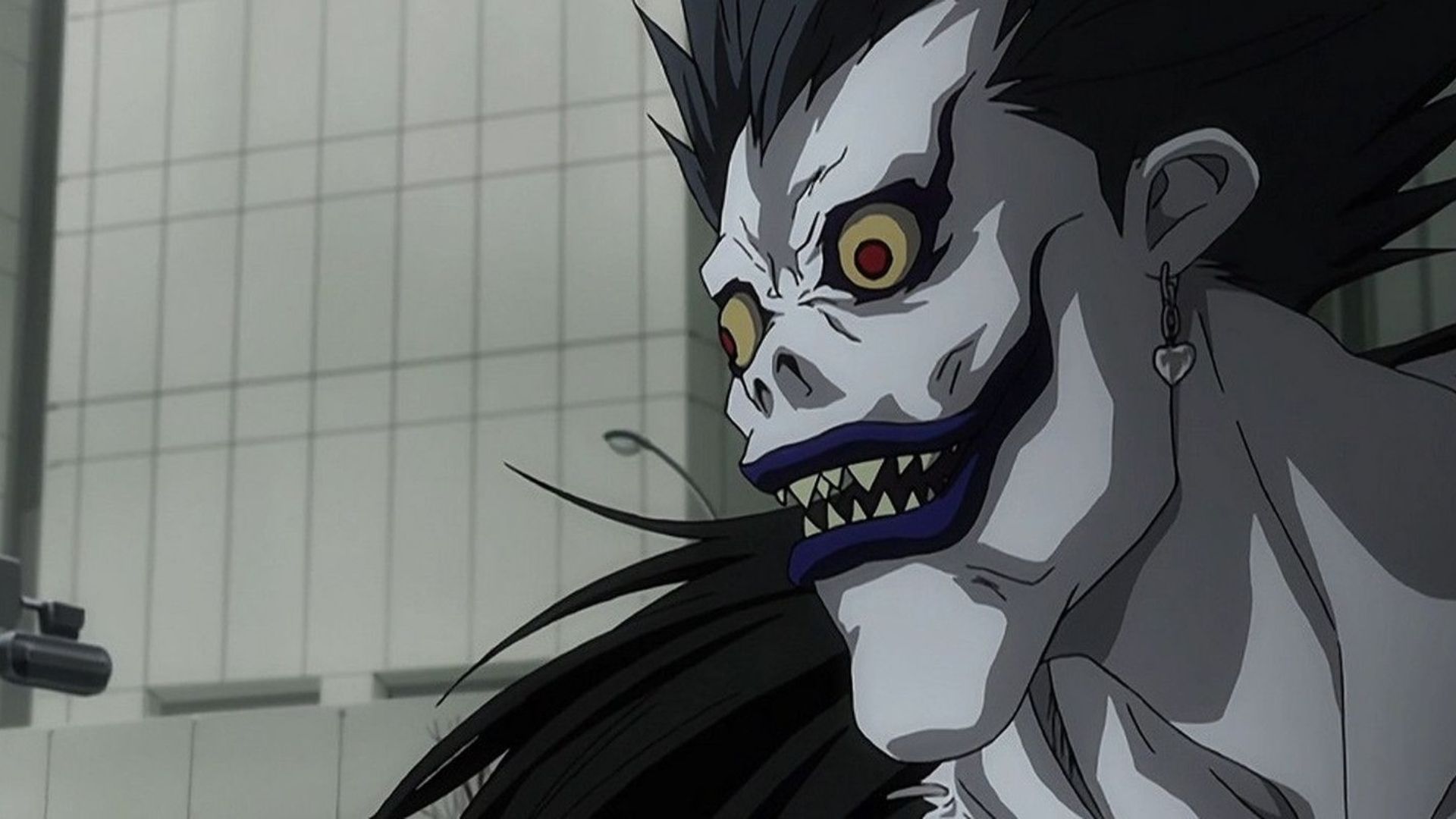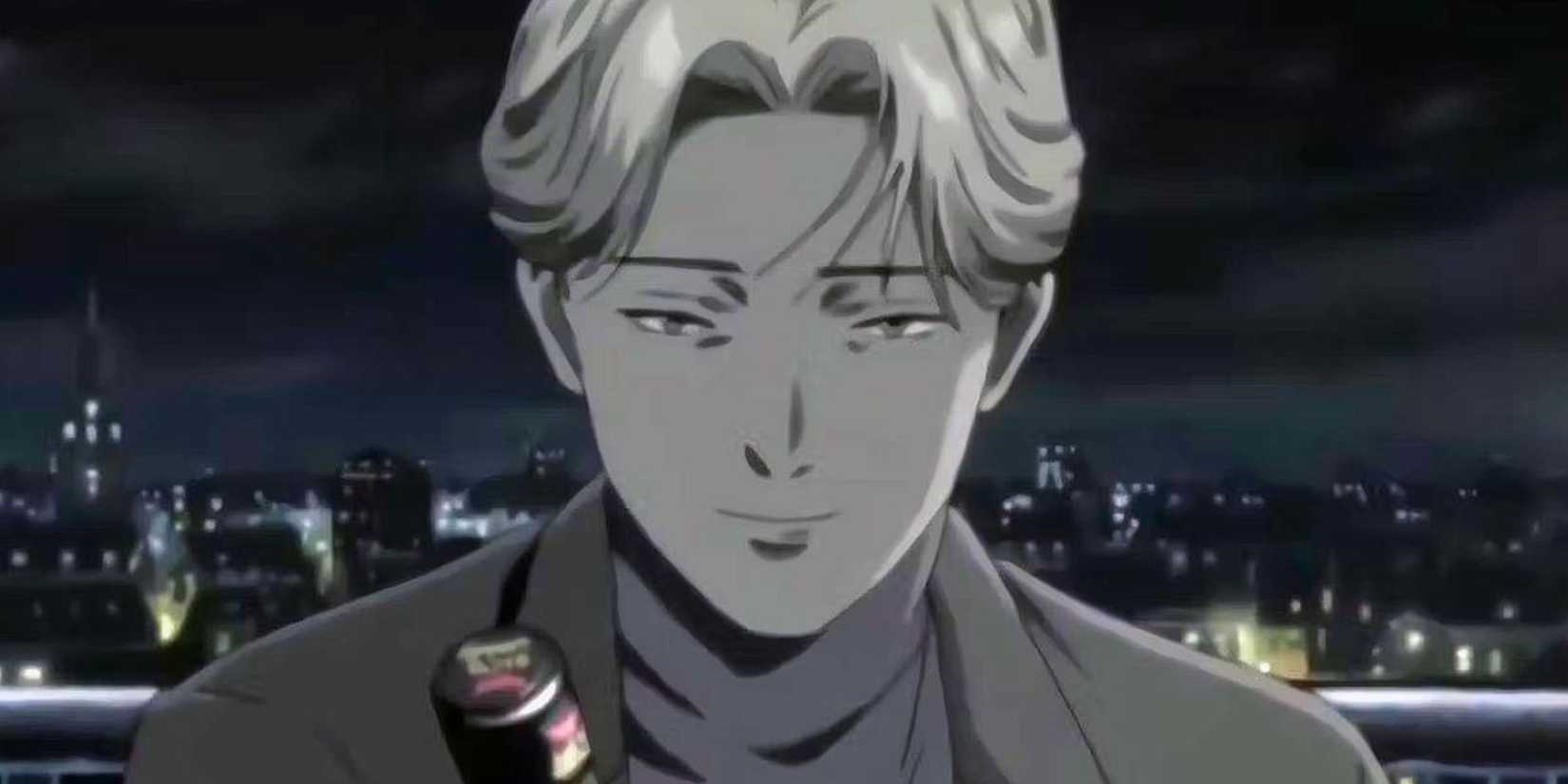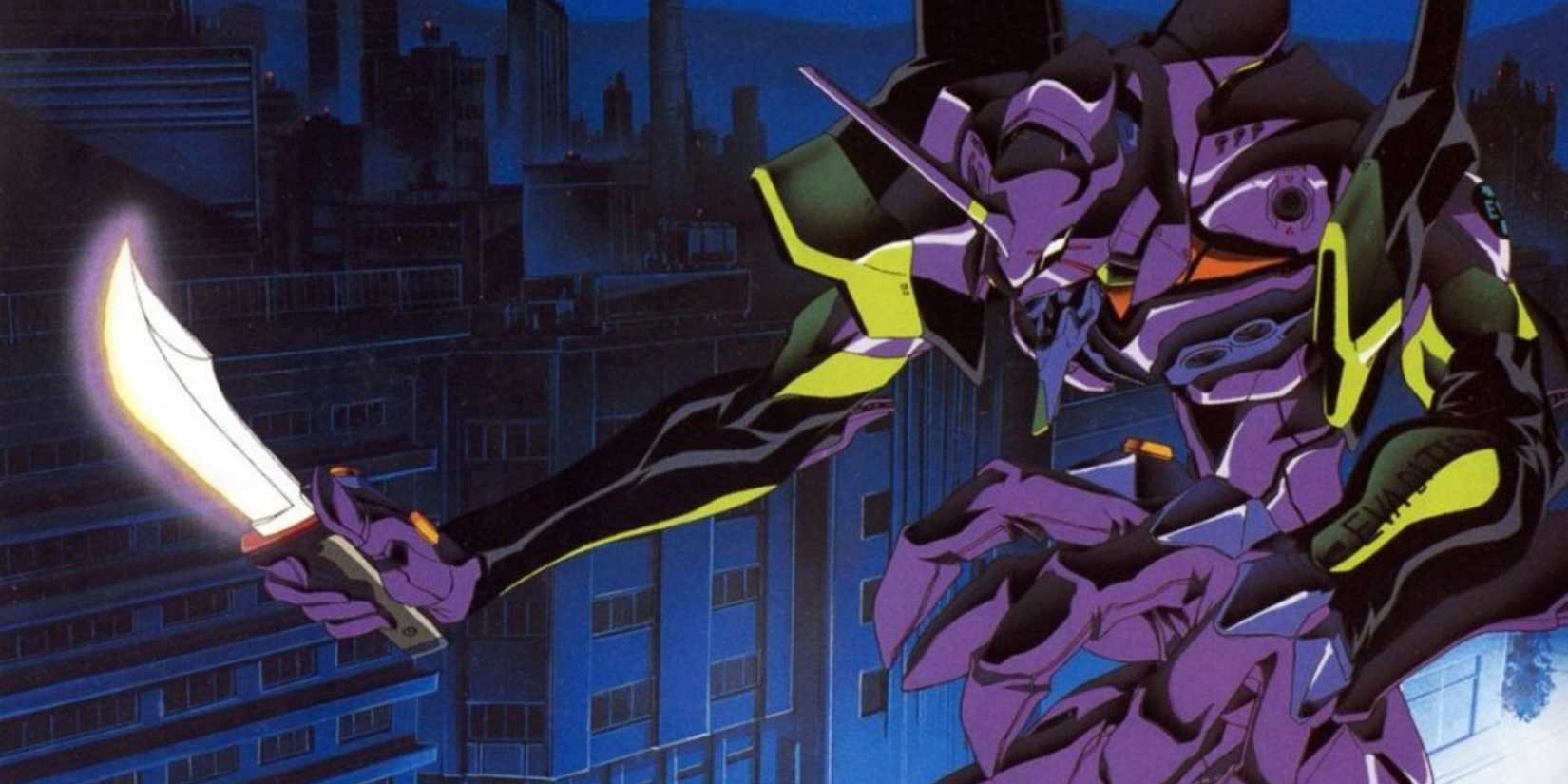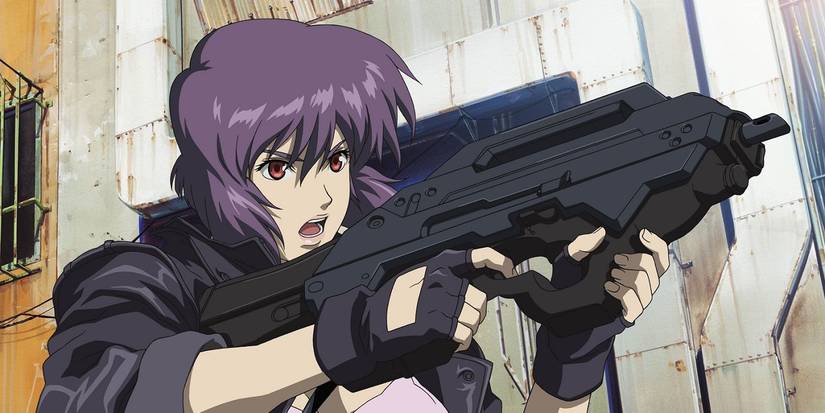
For a lot of anime fans, Death Note was their first experience with smart, suspenseful storytelling – it’s as captivating as any top Hollywood thriller. This 2006 anime, with its 37 episodes, creates a really tense and thought-provoking atmosphere as we watch Light Yagami lose his way, letting his idea of justice become an all-consuming obsession. The clever back-and-forth between Light and L is still considered some of the best in anime.
While Death Note is a truly memorable anime, it’s not the only one that expertly combines cleverness, suspense, and shocking moments. Many other anime delve even deeper into the human psyche, creating a more unsettling mood and a more intricate storyline. These shows push psychological thrills to a more disturbing and profound level, making Light’s desire for power seem relatively tame.
Steins;Gate (2011)
The Psychological Consequences Of Time Travel Laid Bare

Steins;Gate starts as a fun, lighthearted science fiction story, but quickly becomes a deeply moving and suspenseful psychological thriller. It centers on Rintarou Okabe and his group of friends who stumble upon a way to send messages to the past, which leads to unforeseen and permanent repercussions.
While both Steins;Gate and Death Note explore dark themes, Steins;Gate excels at portraying the personal struggles of guilt and obsession. Unlike Light in Death Note, whose descent into villainy stems from a god complex, Okabe’s breakdown is driven by repeated trauma and agonizing choices. This makes his psychological unraveling more impactful, as it’s rooted in genuine emotional pain – love and loss – rather than a desire for power.
Rather than focusing on clever arguments or battles of wits, Steins;Gate puts its main character in a deeply emotional and confusing situation. What makes the show so good is how it uses time travel – a common science fiction idea – to create a psychological impact that’s just as disturbing and memorable as the show Death Note.
Monster (2004-2005)
Realistic Psychological Horror That Doesn’t Need Supernatural Elements

The series Monster takes place in Europe after the Cold War and centers on Dr. Kenzo Tenma, a gifted surgeon. He makes the fateful decision to save a young boy’s life, only to discover that boy later becomes a dangerous and heartless killer. The show then unfolds over 74 episodes, deeply investigating themes of right and wrong, who we are, and the very essence of evil.
While Death Note uses fantastical elements to create suspense, Monster focuses on the horrors that real people are capable of. The show’s unsettling nature comes from the frightening idea that genuine monsters can exist in the world around us. Its deliberate pacing, complex characters, and the chillingly compelling villain, Johan Liebert, build a tension that feels more realistic and deeply disturbing than the supernatural conflicts in Death Note.
Unlike some stories that rely on supernatural forces, Monster presents evil as something disturbingly human and close to home. This makes even everyday interactions and decisions feel unsettling, hinting at a potential slide into darkness – a deep psychological horror that Death Note only touches upon.
Code Geass (2006-2007)
Power And Morality Create A Far More Explosive Mind Game Than Death Note

I’m a huge fan of Code Geass because it follows Lelouch Lamperouge, a prince who gets this incredible power called Geass – basically, he can make anyone do what he says. It reminds me a bit of Death Note, with Light Yagami, because Lelouch also wants to create a better world. But what I really love is how Code Geass digs deeper into the toll that power takes on him. It’s just a more complex and fascinating story, honestly.
Both Death Note and Code Geass feature intense strategic conflicts, but Code Geass expands the scope to a worldwide scale. Each episode presents complex moral and political challenges, and every win comes at a great emotional cost. Lelouch’s struggles feel more painful and complicated than Light’s increasing pride.
What truly sets Code Geass apart is its focus on the human side of things, even with all the grand events unfolding. It powerfully portrays the struggles of being a leader and the dangerous allure of believing you’re always right – something Death Note, with its emphasis on logic, never quite achieves.
Neon Genesis Evangelion (1995-1996)
The Human Psyche Has Never Been Deconstructed More Brutally

Neon Genesis Evangelion isn’t just a typical anime about robots fighting monsters. While it appears to be that on the surface, it’s actually a deeply unsettling and insightful exploration of difficult emotions like depression, anxiety, and the search for meaning in life. This is why it’s become incredibly famous – some even say it’s more iconic than Death Note.
Shinji Ikari and Light Yagami are very different characters. Unlike the confident and brilliant Light, Shinji is vulnerable and often doubts himself, making him a relatable protagonist. Many viewers connect with his feelings of loneliness and insecurity. While Death Note explores morality through external conflicts like killing and control, Evangelion focuses on internal struggles – a battle with one’s own ego, past trauma, and the desire to keep going.
By the end of Evangelion, it’s obvious the show isn’t just a complex story – it delves into deep philosophical ideas. Its honest and intense look inside its characters makes other intellectually stimulating shows, like Death Note, seem simple in comparison.
Fullmetal Alchemist: Brotherhood (2008-2010)
Moral Consequences Explored With Greater Emotional Depth Than Death Note

While Fullmetal Alchemist: Brotherhood is famous for its detailed world and exciting action, it also excels at exploring difficult moral questions. The story centers on brothers Edward and Alphonse Elric, who suffer terrible consequences after trying to use alchemy to bring their mother back to life.
Though Death Note focuses on ideas of justice and personal pride, Fullmetal Alchemist: Brotherhood explores more complex themes like guilt, finding forgiveness, and the heavy consequences of seeking knowledge. Throughout the series, characters are pushed to their emotional and mental breaking points, facing devastating revelations about the Philosopher’s Stone and enduring the pain of loss and making difficult sacrifices.
What truly makes Fullmetal Alchemist: Brotherhood special is its empathy. The series deeply affects viewers emotionally and delivers powerful moral lessons, creating a much stronger impact than the more cold and calculating actions seen in Death Note.
Ghost In The Shell: Stand Alone Complex (2002-2005)
Questions Identity And Consciousness More Profoundly Than Death Note Ever Managed To

Ghost in the Shell: Stand Alone Complex is a brilliant cyberpunk series that thoughtfully explores ideas about philosophy, politics, and what it means to be human. The story follows Major Motoko Kusanagi and her team in Section 9 as they investigate crimes in a world where the boundaries between people and advanced technology are increasingly unclear.
While Death Note explores what’s right and wrong, Stand Alone Complex delves into deeper questions about what it means to be human. Its case-of-the-week format lets it examine complex ideas like identity, free will, and the moral implications of advanced technology – issues that go beyond simple ideas of justice. Each case challenges viewers to think about what defines humanity in a world where our very selves can be replicated, erased, or manipulated.
Unlike the moral questions explored in Death Note, Stand Alone Complex delves into the human mind in a thought-provoking and disturbing way, pushing the psychological thriller genre into uncharted territory by considering a post-human perspective.
Attack On Titan (2013-2023)
Psychological Despair On A Scale Far Greater Than Death Note

Initially, Attack on Titan is a thrilling story about humanity fighting for survival. However, it quickly becomes a deeply disturbing and complex anime, exploring difficult psychological themes. The main character, Eren Yeager, begins as a hopeful hero battling terrifying creatures, but ultimately transforms into a force of devastation.
While Death Note thoughtfully examines how power can corrupt, Attack on Titan takes that idea to a much larger, devastating scale. The series constantly reveals shocking truths – about the Titans themselves and the dark side of global politics – that push both its characters and the audience into feelings of hopelessness and deep anxiety.
Attack on Titan isn’t just a suspenseful thriller—it’s a deeply devastating emotional experience. With its intense moments, complex characters, and bleak outlook, it surpasses even Death Note, establishing itself as the most impactful psychological anime of recent times.
Read More
- Spider-Man 4 Might Feature [Spoiler]’s MCU Debut — Report
- One of the Most “Exciting” Paranormal Adventure TV Shows of the Decade Sets Season 11 Release Date on HBO Max
- Black Phone 2 Ending & Grabber’s Fate Explained
- Прогноз криптовалюты SKY: прогнозы цены SKY
- 6 Years Ago, Star Wars Debuted Its Most Wasted Villain In Franchise History
- Прогноз криптовалюты ADA: прогнозы цены ADA
- Серебро прогноз
- Золото прогноз
- Disney Plus Celebrates Zootopia 2 Special Look Debut With New Trailer
- Ice-T Explains Reduced ‘Law & Order’ Presence
2025-11-09 05:41